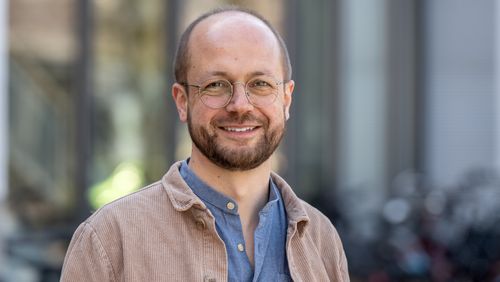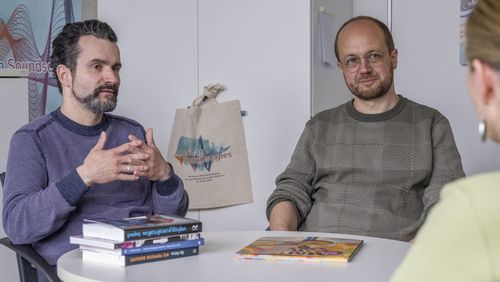Choir rehearsals are disappearing from people's calendars, music lessons at schools are more theory than practice and churches are shrouded in silence. The pandemic has taken a heavy toll on singing, too. Gunter Kreutz discusses the danger of losing this cultural asset.
"Humans are cultural beings, and as such they need cultural activities as much as the air they breathe." Music psychologist Prof. Dr Gunter Kreutz considers everyday culture an invaluable asset, and singing in particular as integral to our lives as human beings. Singing happy birthday, Christmas nativity plays, cheering on your favourite team at the football stadium – it is hard for us to imagine such events taking place in silence, without singing and music. But in the Covid pandemic the unimaginable has become reality.
Kreutz fears that group singing could have fallen into disrepute indefinitely: "It leads to the dispersion of aerosols loaded with the dangerous viruses and therefore has a bad reputation right now." Yet under normal circumstances, millions of people view singing in a choir on a regular basis as essential to their quality of life. "When this is no longer possible, it has a large impact on their sense of well-being. Not being able to sing at all, or only very infrequently, destabilizes both the body and the mind," the musicologist explains. Many choirs have stopped meeting because of the pandemic and in recent years there has been little – if any – activity with youths in this area. This is also indicated by a study conducted last year by the Catholic University of Eichstätt-Ingolstadt, in which more than 4,000 choirs in German-speaking countries were surveyed. According to the study, most groups recorded numerous resignations, with less than a third retaining the original number of singers. Almost every eighth children's and youth choir also had to be closed down. This trend is leaving marks that change cultural life as a whole, Kreutz notes. He believes that limiting the damage is a generational task, and that the first step must be to end the stigmatization: "Singing is not a threat to society but an important cultural asset!"
Cultural skills sidelined
The pandemic has consolidated a trend that has been observed for many years, says Kreutz. "There are many children and young people today who no longer feel any connection to singing." One reason for this is to be found at kindergartens, where there is too little singing in general nowadays – also because kindergarten teachers often lack training in early musical education. He also points to a shortage of specialist music teachers in primary schools throughout the country. "Little by little, generations are growing up for whom singing is nothing more than a marginal phenomenon – something that only a few talented people enjoy," Kreutz fears.
Yet singing is of enormous value for the individual and society, he stresses. "Singing keeps you mentally and physically fit and brings people together." For Kreutz, it is the youngest members of society who have the greatest potential. Children benefit from musical experiences from a very early age. Singing comes before talking, and thus plays a key role in language development. This process begins with the singing of lullabies to babies, which Kreutz sees as a vital expression of love and parental care. "The joy of singing often goes back to early childhood experiences. If a person is not successfully introduced to the world of singing during their childhood, it often remains closed to them later in life," he explains.
Kreutz is looking forward to the time when this cultural component of life can be experienced more intensely again, because singing can also help people to recover from the trauma of the pandemic, he stresses. "It appears that singing can make us more resilient. It can help us to replenish our reserves of positivity." He therefore hopes that group singing will soon be allowed once more, as a resource that boosts our health and joie de vivre.







